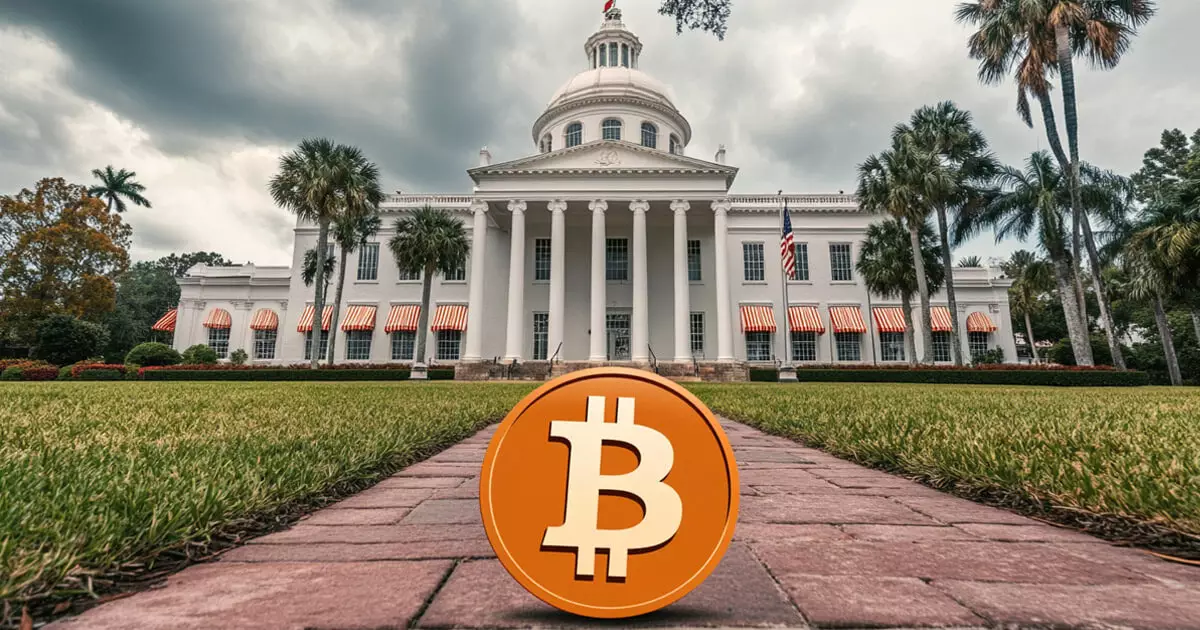In a bold move that reflects both foresight and a pivot in financial ideology, Florida is positioning itself as a potential leader in Bitcoin integration at the state level. Senator Joe Gruters, with his proactive approach, has laid down a significant framework aimed at stabilizing the economy against inflation while embracing fiscal independence. The bill introduced on March 4—known as Bill S0550—allows the state’s Chief Financial Officer to allocate as much as 10% of various key financial assets into Bitcoin, signifying a monumental shift in how state funds could be managed.
This isn’t merely about adopting a new financial tool; it’s a broader economic philosophy rooted in the idea of financial sovereignty. By allowing the allocation of pension funds and other significant state assets into cryptocurrencies, Gruters is advocating for a model that empowers Florida not just economically but as a beacon of financial innovation. In a time when inflation is eating away at traditional sources of wealth, Gruters’ strategy for Bitcoin adoption stands as a proactive shield against an uncertain financial landscape.
A Timely Legislative Initiative
The timing of this initiative is crucial. With many individuals disillusioned by governmental handling of financial crises, Florida’s move toward Bitcoin investment represents a clear appeal to those advocating for a more liberated economic environment. Gruters’ connection of this legislative effort to the broader push for “freedom” illustrates a growing sentiment among constituents who value autonomy and innovation over traditional constraints imposed by government systems.
The bill isn’t a mere response to Bitcoin’s popularity; it’s a strategic recognition of its potential to address the challenges facing traditional financial systems. By fostering an environment where Bitcoin can thrive, Florida is on the brink of redefining its economic infrastructure, opening the doors to a new age of financial interaction unimpeded by legacy systems.
Influence of National Leadership on Local Policy
It is also key to note Senator Gruters’ alignment with national political movements, particularly referencing the influence of former President Donald Trump’s endorsement of Bitcoin. By echoing Trump’s calls for America to become the “Bitcoin capital of the world,” Gruters not only aligns himself with popular sentiment but capitalizes on the momentum generated through presidential rhetoric. Such alignment can bolster political support among those who yearn for a more decentralized financial structure that embodies individual empowerment.
In many ways, Gruters’ approach reflects a microcosm of a larger ideological trend towards decentralization, where traditional governance models are being challenged by those advocating for innovative solutions. Florida’s willingness to adopt policies that break from convention sets a precedent that challenges other states to reconsider their economic responses to modern financial challenges.
Economic Refugees and Opportunity for Growth
Furthermore, Florida’s reputation as a destination for “economic refugees” highlights a deeper societal shift. The influx of residents seeking not just warmer climates but also fiscal autonomy and regulatory clarity is indicative of a significant transformation in consumer behavior and migration patterns. These “economic refugees” are actively looking for states that offer them not just sanctuary but a new opportunity for financial liberation—including the freedom to invest in assets such as cryptocurrency.
This influx emphasizes the state’s potential as a hotbed for innovation, attracting a demographic eager to participate in the burgeoning digital currency ecosystem. For many, Bitcoin symbolizes not just an investment, but a survival strategy in an increasingly unstable economy. Florida could very well become a magnet for these innovative thinkers and entrepreneurs, creating a robust economic ecosystem that values digital currencies.
The Broader Implications of Bitcoin Adoption
Critics may argue that such investments into cryptocurrency come with risks, given its volatile nature. However, Gruters ties this trend back to a larger agenda of fiscal reform designed to combat volatility within Florida’s insurance and financial markets. His vision of transparency and cost control is not just a response to potential backlash; it’s a proactive strategy that embraces the future while addressing current challenges.
In this light, Florida’s willingness to entertain Bitcoin as a legitimate asset within its financial framework invites a larger question about the role of cryptocurrencies in national economic discussions. If Florida succeeds in this venture, it might just set off a chain reaction, prompting other states to consider similar policies and propelling Bitcoin into mainstream acceptance across various levels of governance.
Through Gruters’ legislative efforts, Florida stands on the cusp of transformation, ready to not only lead the charge in cryptocurrency adoption, but to redefine what it means to embrace economic freedom in an increasingly centralized world.
















Leave a Reply